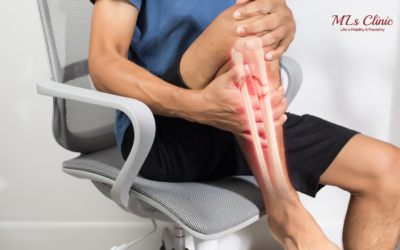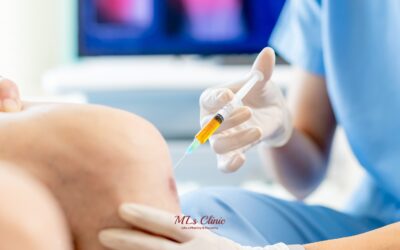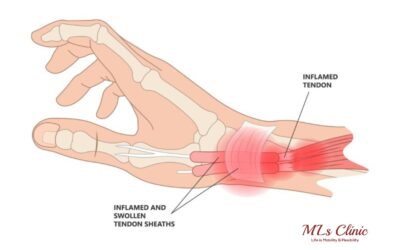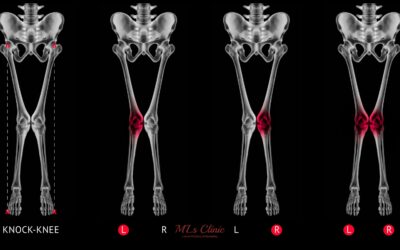From Diagnosis to Recovery: Know Avascular Necrosis Treatment Options
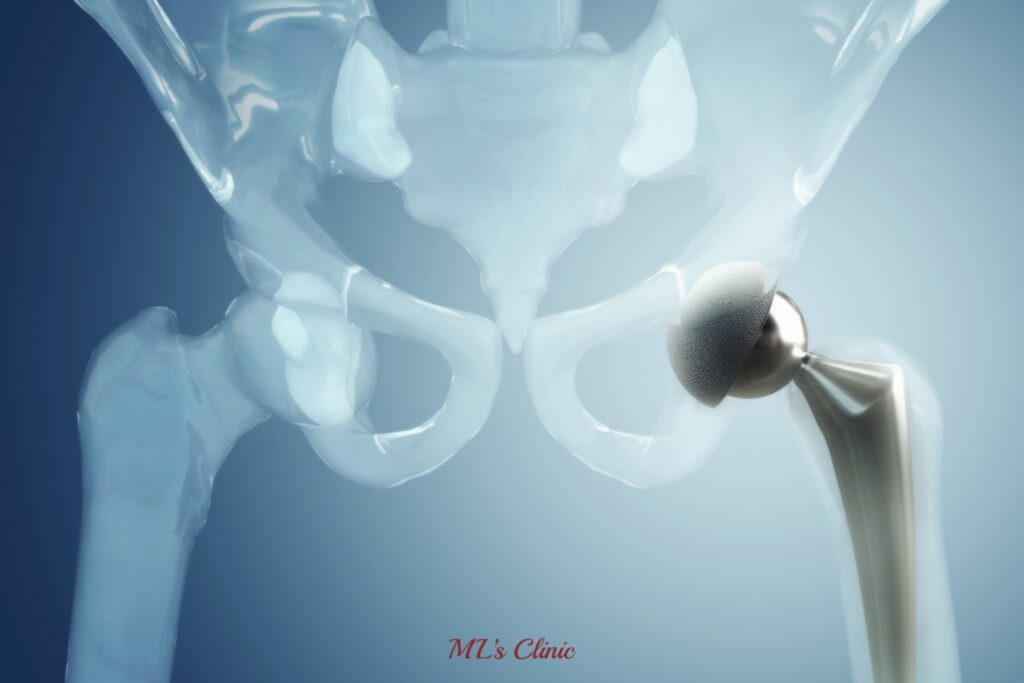
What is Avascular Necrosis?
Avascular necrosis is a condition caused by the temporary or permanent loss of blood flow to a bone. Without proper blood supply, the bone tissue dies, leading to bone collapse. If the affected area is near a joint, the joint surface can also collapse.
This condition can occur in any bone, though it is most common at the ends of long bones. It may affect a single bone, multiple bones simultaneously, or different bones at various times.
Basic Facts About Avascular Necrosis
Shoulder avascular necrosis is a complex condition that remains not fully understood. It can be caused by multiple factors, including:
- Traumatic injuries
- Alcohol abuse
- Long-term corticosteroid use
- Genetic disorders
- Lupus
- Sickle cell anemia
- Vascular or bone-related disorders and diseases
Avascular necrosis is most treatable when detected early, before significant bone damage occurs. Identifying symptoms early can help you seek an evaluation for diagnosis or explore other possible causes.
Chronic pain is the most common symptom of shoulder avascular necrosis, often radiating to the elbow and accompanied by reduced joint mobility. Initially, the pain may be mild but worsens as the condition progresses.
Most Common Types of Avascular Necrosis
The most common types of Avascular Necrosis (AVN), also known as osteonecrosis, generally affect the following areas:
1. Femoral head – Hip Avascular Necrosis (AVN)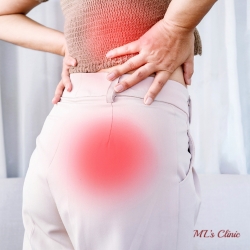
This is the most common site for AVN, where blood supply to the femur’s ball part of the hip joint is disrupted.
Hip Avascular Necrosis (AVN) occurs when blood flow to the femoral head (the top of the thigh bone) is disrupted, causing bone tissue death. This causes discomfort, stiffness, and difficulty in movement. Early treatment options include medications to relieve pain, physical therapy, and the use of crutches to reduce weight on the affected hip. In advanced cases, surgical interventions may be necessary, such as core decompression or osteotomy. When the joint is severely damaged, Hip Replacement Surgery is the most effective option, replacing the damaged joint with an artificial one for pain relief and restored function.
2. Shoulder Avascular Necrosis (AVN)
The humeral head, or ball of the shoulder joint, can suffer from AVN.
The shoulder is a complex joint in the body, consisting of the upper arm bone (humerus) and the shoulder blade (scapula) forming a ball-and-socket structure. The head of the humerus is covered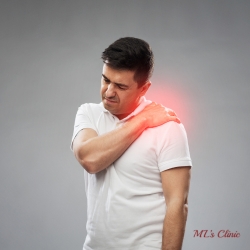 by articular cartilage, a smooth, white tissue. This cartilage allows the bones to move against each other with minimal friction, enabling smooth movement of the shoulder.
by articular cartilage, a smooth, white tissue. This cartilage allows the bones to move against each other with minimal friction, enabling smooth movement of the shoulder.
Symptoms of shoulder avascular necrosis (AVN) include pain in the shoulder that worsens with movement, stiffness, limited range of motion, and discomfort even at rest. In advanced stages, weakness in the shoulder and difficulty in lifting objects may develop.
Treating Shoulder Avascular Necrosis
Avascular necrosis is a serious issue that needs prompt treatment. The type of treatment you get will depend on how advanced the condition is.
1. Conservative (Nonsurgical) Treatment
In the early stages of shoulder avascular necrosis, we can often manage it with conservative treatments. This includes physical therapy and changing your activities to avoid putting too much strain on your shoulder.
2. Decompression Surgery
Also known as core decompression, this surgery can be helpful for early-stage avascular necrosis. The aim is to relieve symptoms and stop the condition from getting worse by lowering pressure on the bone marrow and encouraging the growth of new blood vessels to enhance circulation.
3. Joint Resurfacing
Joint resurfacing surgery may be suitable for younger, active patients with small areas of damage on the humeral head. In this procedure, the damaged bone is removed and replaced with synthetic materials that help to restore function and prevent further damage.
4. Joint Replacement
While decompression and joint resurfacing can help some patients with moderate issues, those with advanced problems benefit from shoulder replacement surgery. In this procedure, Dr. Preetesh Choudhary removes the damaged parts of the shoulder joint and replaces them with artificial components that work like a normal joint.
Shoulder Replacement Surgery addresses the root cause of avascular necrosis by using artificial materials that don’t need blood flow to function. After the surgery, physical therapy helps rebuild shoulder strength and movement.
3. Knee Avascular Necrosis (AVN)
Knee avascular necrosis (AVN) occurs when the blood supply to the bone in the knee is reduced or cut off, causing bone tissue to die. This leads to the gradual collapse of the bone structure, resulting in joint pain, stiffness, and difficulty with movement. The condition may develop gradually or follow an injury.
Common causes of knee AVN include trauma, steroid use, excessive alcohol consumption, and certain medical conditions like lupus. Treatment options depend on the severity and include medications, physical therapy, and in advanced cases, surgery such as core decompression or Knee Joint Replacement to restore function.
4. Ankle and Wrist AVN
Avascular necrosis (AVN) in both the ankle and wrist can be challenging due to the essential role these joints play in daily movement and weight-bearing. In the ankle, AVN often leads to difficulty in walking, instability, and persistent pain, while in the wrist, it can hinder grip strength and fine motor skills. Early symptoms may be subtle but worsen as the condition progresses.
Risk factors include fractures, dislocations, and long-term use of corticosteroids. Without timely treatment, AVN can lead to arthritis and joint destruction. Management includes conservative approaches like medication and bracing, but severe cases may require surgical options, including joint fusion or replacement.
Conclusion:
Avascular necrosis is a painful condition that can greatly impact your daily life. If you have any conditions or take medications that raise your risk, consult an orthopedic surgeon. They can help you recognize potential symptoms of avascular necrosis. Early detection and prompt treatment are important to slow its progression and manage the symptoms effectively.
